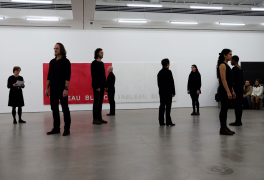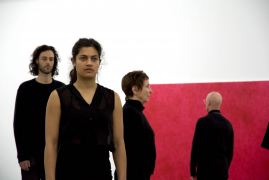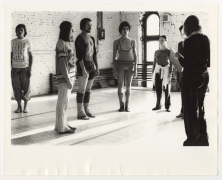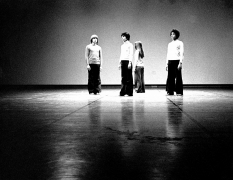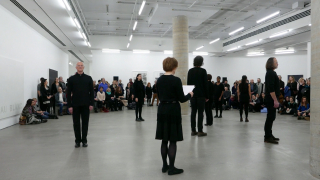Droit debout, 1973
2017 re-enactment by Galerie de l’UQAM for the exhibition Françoise Sullivan. Radiant Trajectories
Photo: Galerie de l’UQAM
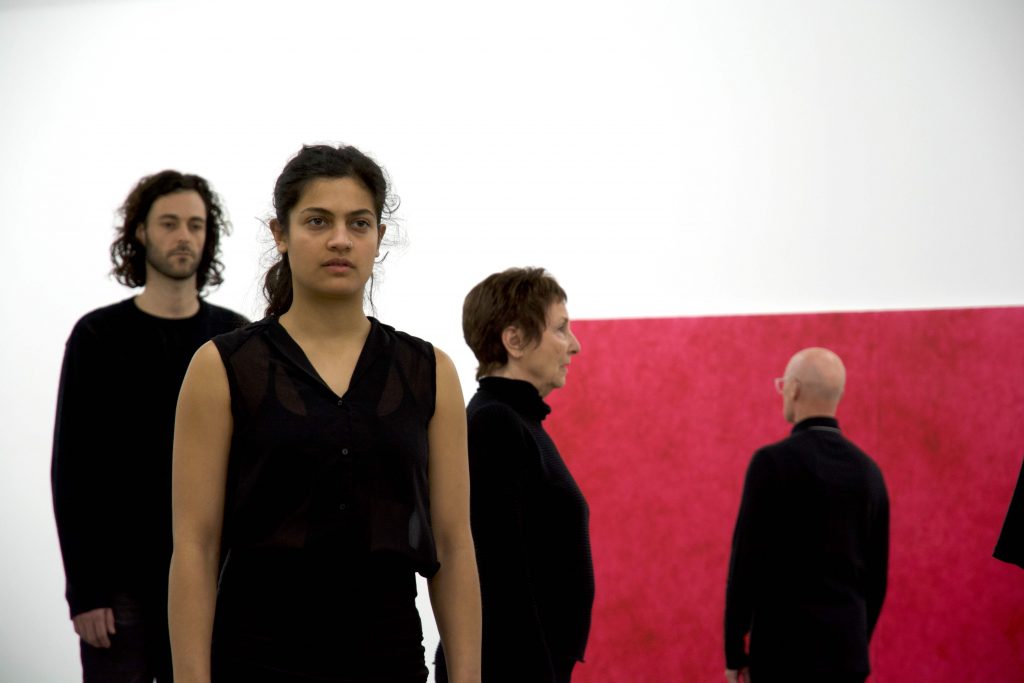
2017 re-enactment by Galerie de l’UQAM for the exhibition Françoise Sullivan. Radiant Trajectories
Photo: Galerie de l’UQAM
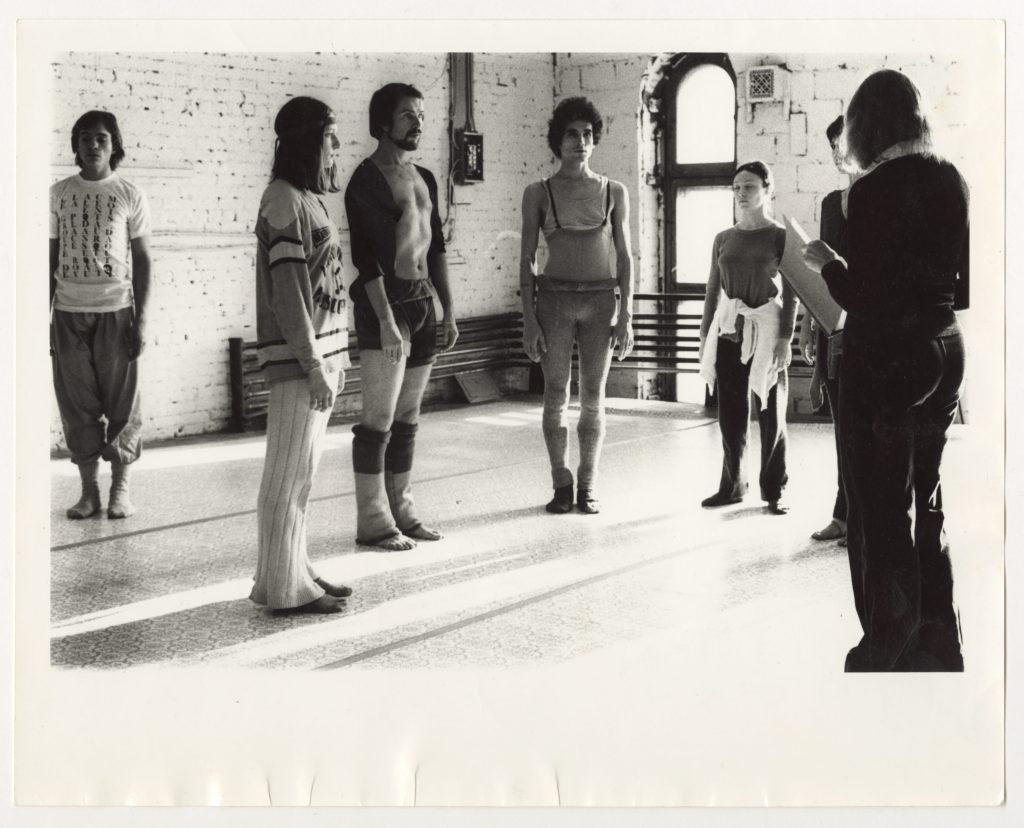
Rehearsal of Droit debout with the dancers of the Groupe de la Place Royale, 1973
Photo: Alex Neumann
Françoise Sullivan’s personal papers
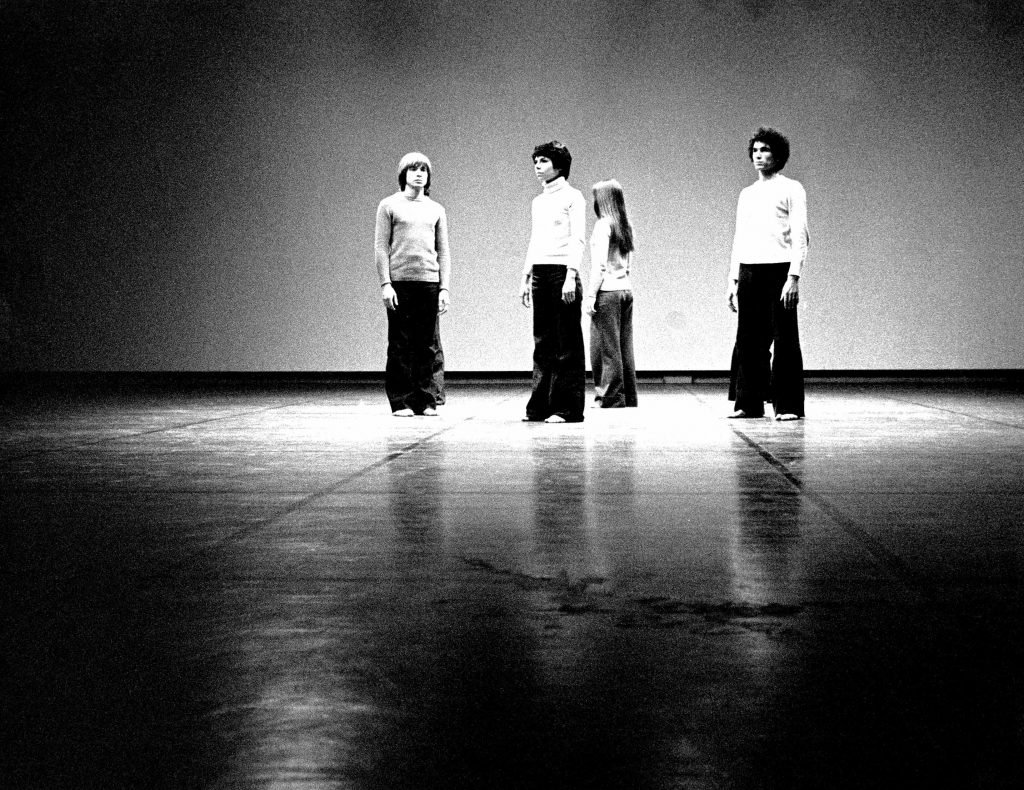
Droit debout, with the dancers of the Groupe de la Place Royale. Choreography presented at the Musée d’art contemporain de Montréal, as part of the exhibition Périphéries, 1974
Photo: Anna M. Dupuis
Françoise Sullivan’s personal papers
Excerpt from the re-enactment made in 2017 by Galerie de l’UQAM for the exhibition Françoise Sullivan. Radiant Trajectories
the imaginary line
rises from the fat of the foot
to the tip of the head
beyond the banal conscience
and the return to zero
recapture your body
in its space
in its weight
in its warmth
in this thought in this dream
in this imaginary line
silence and emptiness fulfill
on a return
beyond the banal conscience
grasping your body
in its totality
in its possibilities
in its wholeness
Droit debout, 1973
Choreography, audio recording and text
2017 re-enactment by Galerie de l’UQAM for the exhibition Françoise Sullivan. Radiant Trajectories
Performed by Christiane Pasquier (text) and dancers Michèle Febvre, Paul-André Fortier, Dana Michel, Myriam Arseneault, Denis Lavoie, Andréa Corbeil and Nicolas Patry
Preserved fragments and documentation. Françoise Sullivan’s personal archives and collection
Artwork and documentation
Droit debout is representative of Françoise Sullivan’s conceptual experiments in the first half of the 1970s. She posits immobility as a radical means of concentrating the energy of the body in thought. In that regard, the work reflects the influence of John Cage on Françoise Sullivan, who was receptive to exploring a spare, even minimalist, form of choreography. Placed at random, the dancers are motionless and do not interact; their posture conveys a reflective presence. Listening to a text-poem intoned as a sort of “imaginary line” that enumerates the parts of the body from head to toe, they experience the power of emptiness, solitude and silence. The work was presented four times between 1973 and 1975 and re-enacted in 2017 at the Galerie de l’UQAM at the same time thousands of women in Montreal and six hundred cities around the world took to the streets, standing up in solidarity to denounce the misogyny of an unworthy American president. Droit debout – standing straight – the only position possible in the face of today’s world, was performed before an audience that was virtually hypnotized by the incantatory nature of the text and the imposing, statuesque immobility of the dancers’ bodies.
